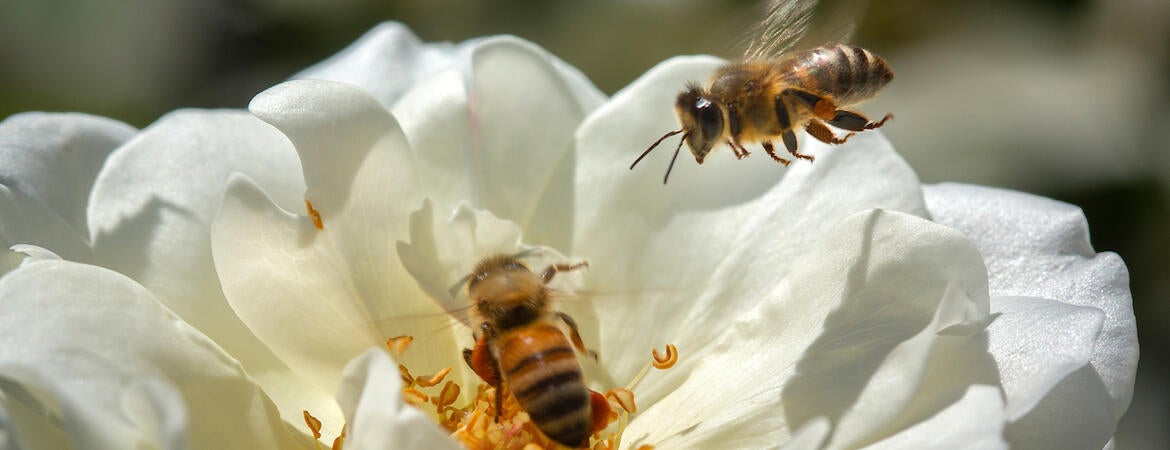UC Riverside has been designated as a bee-friendly campus and become an affiliate of the Bee Campus USA program, joining other institutions in improving the landscape for pollinators.
An initiative of the Xerces Society for Invertebrate Conservation, Bee Campus USA and the associated Bee City USA program provide a framework for communities to work together to conserve native pollinators through efforts such as increasing native plants, providing nest sites, and reducing the use of pesticides.
Boris Baer, an entomologist and co-founder of the Center for Integrative Bee Research, or CIBER, said the designation is a reflection of UCR’s leading efforts on pollinator health that include the work of research students and other researchers including entomologists Barbara Baer-Imhoof, Erin Wilson-Rankin, Quinn McFrederick, and Hollis Woodard.
The UCR-based center is one of the largest honeybee health networks in the country, enabling entomologists, engineers, economists, and professional beekeepers to collaborate on innovative solutions for colony collapse.
“UCR is lucky to be situated in a geographic region that houses an astonishing amount of bee diversity, and this allows us to conduct groundbreaking research to find solutions to keep our six-legged friends happy and in the air,” Baer said. “I see the certification as an exciting trigger that will showcase the many research, teaching, and outreach activities on the campus. We invite everyone to be part of our journey to save the bees.”
The program leaves it up to each campus to play to its strengths in how they conserve pollinators, reporting accomplishments each year.
UCR researchers have created a website that provides information about pollinators and what the campus is doing to sustain them.
Research has shown significant declines in the native pollinator population globally, with up to 40% of pollinator species on Earth at risk of extinction in the coming years as a result of habitat loss, the use of harmful pesticides, and climate change, according to Xerces.
“The program aspires to make people more PC—pollinator conscious, that is,” said Scott Hoffman Black, Xerces’ executive director. “If lots of individuals and communities begin planting native, pesticide-free flowering trees, shrubs and perennials, it will help to sustain many, many species of pollinators.”




